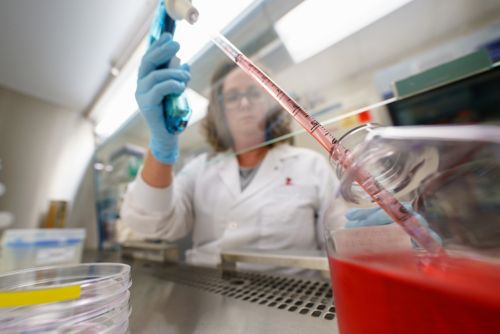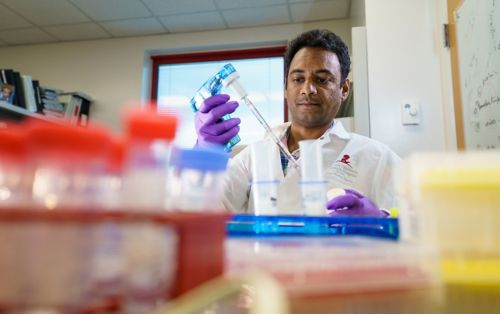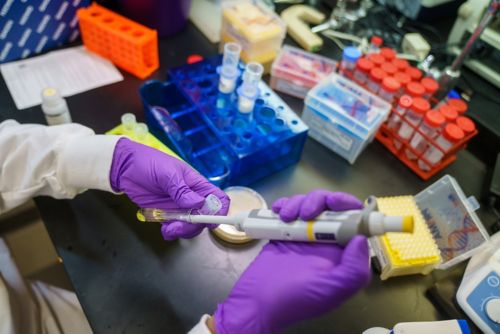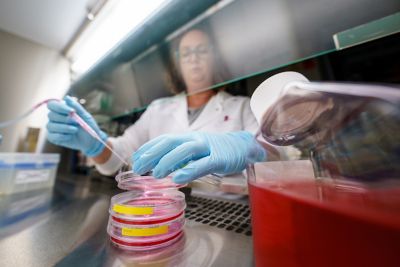St. Jude Family of Websites
Explore our cutting edge research, world-class patient care, career opportunities and more.
St. Jude Children's Research Hospital Home

- Fundraising
St. Jude Family of Websites
Explore our cutting edge research, world-class patient care, career opportunities and more.
St. Jude Children's Research Hospital Home

- Fundraising
Terrence L. Geiger Lab
Investigating the basic biological mechanisms of adoptive cellular therapies to improve treatment outcomes
About the lab
The cells in the immune system can be a powerful resource for treating infection and disease. Certain treatments, known as adoptive cell therapy, use these immune-system cells to eliminate cancer. Our laboratory explores the basic biological mechanisms of these therapies to understand why they may not be as effective in some patients. Our goal is to identify targetable mechanisms that enhance the effectiveness of adoptive cellular therapies and improve outcomes for patients.

Our research summary
Our laboratory works to improve the outcomes of adoptive cellular therapies, including chimeric antigen receptor (CAR) T-cell therapy, in the treatment of pediatric hematological cancers. With a specific focus on models of acute lymphocytic leukemia (ALL) and acute myeloid leukemia (AML), we collaborate with clinical investigators to examine the effectiveness of CAR T-cell therapy. Our goal is to better understand the basic biology that may, in some instances, cause adoptive cellular therapy to fail or lead to a relapse of cancer.
Our research efforts examine the biology of CAR T-cell therapy from multiple angles, including the T cells, tumor, and immune cell microenvironment. With respect to T cells, we investigate their persistence, or the ability of the cells to remain in the body after a tumor has cleared. We seek to improve the persistence of T cells to reduce the possibility of disease relapse.

Our lab also works to understand how T cells, which are highly stimulated around a tumor, may become exhausted and fail to work as effectively. Our research in this area aims to uncover the underlying mechanisms of cellular exhaustion and identify new targetable genes or pathways to enhance T cell function.

In addition, our lab investigates how tumors evade treatment. To conduct this work, we use multiple versions of ALL tumors to discern response variations to CAR T-cell therapy. We modify the CAR construct used in the clinic to make transgenic, immune-competent murine models. These models help us better understand the activity in the tumor microenvironment and host immune environment.
Beyond our dedicated work on adoptive cellular therapies, our lab is a collaborator in the iTARGETS study, a Blue Sky initiative at St. Jude, which seeks to identify and translate innovative targets in immuno-oncology that may one day lead to cures for pediatric cancer and other diseases.

Publications
Contact us
Terrence L. Geiger, MD, PhD
Member, Senior Vice President and Deputy Director for Academic and Biomedical Operations
Department of Pathology
MS 275, Room C7015
St. Jude Children's Research Hospital
Follow Us

Memphis, TN, 38105-3678 USA GET DIRECTIONS